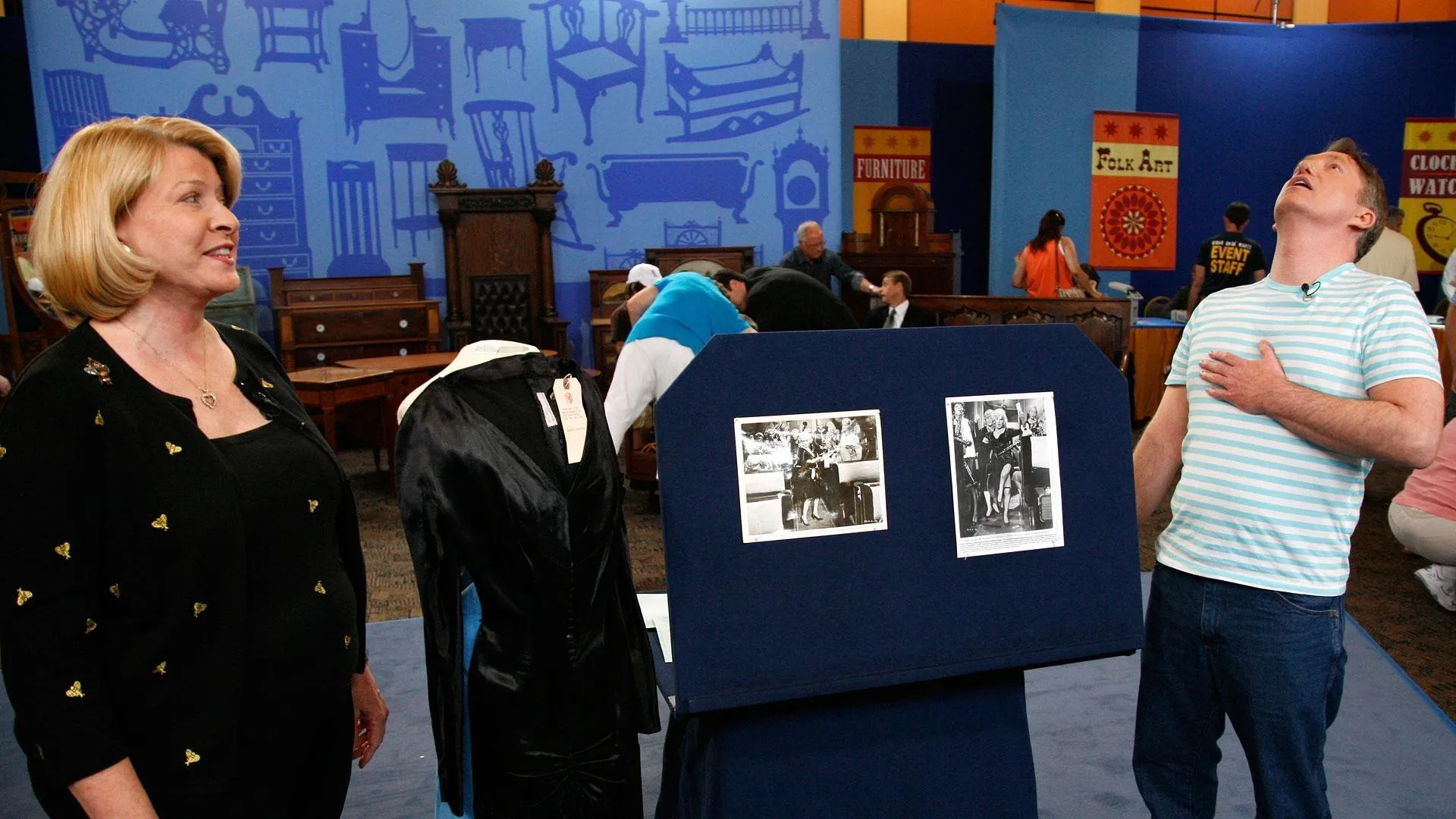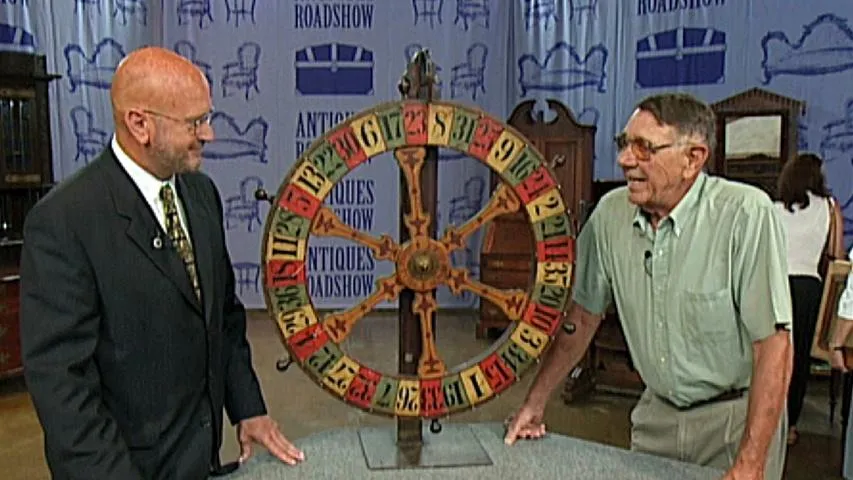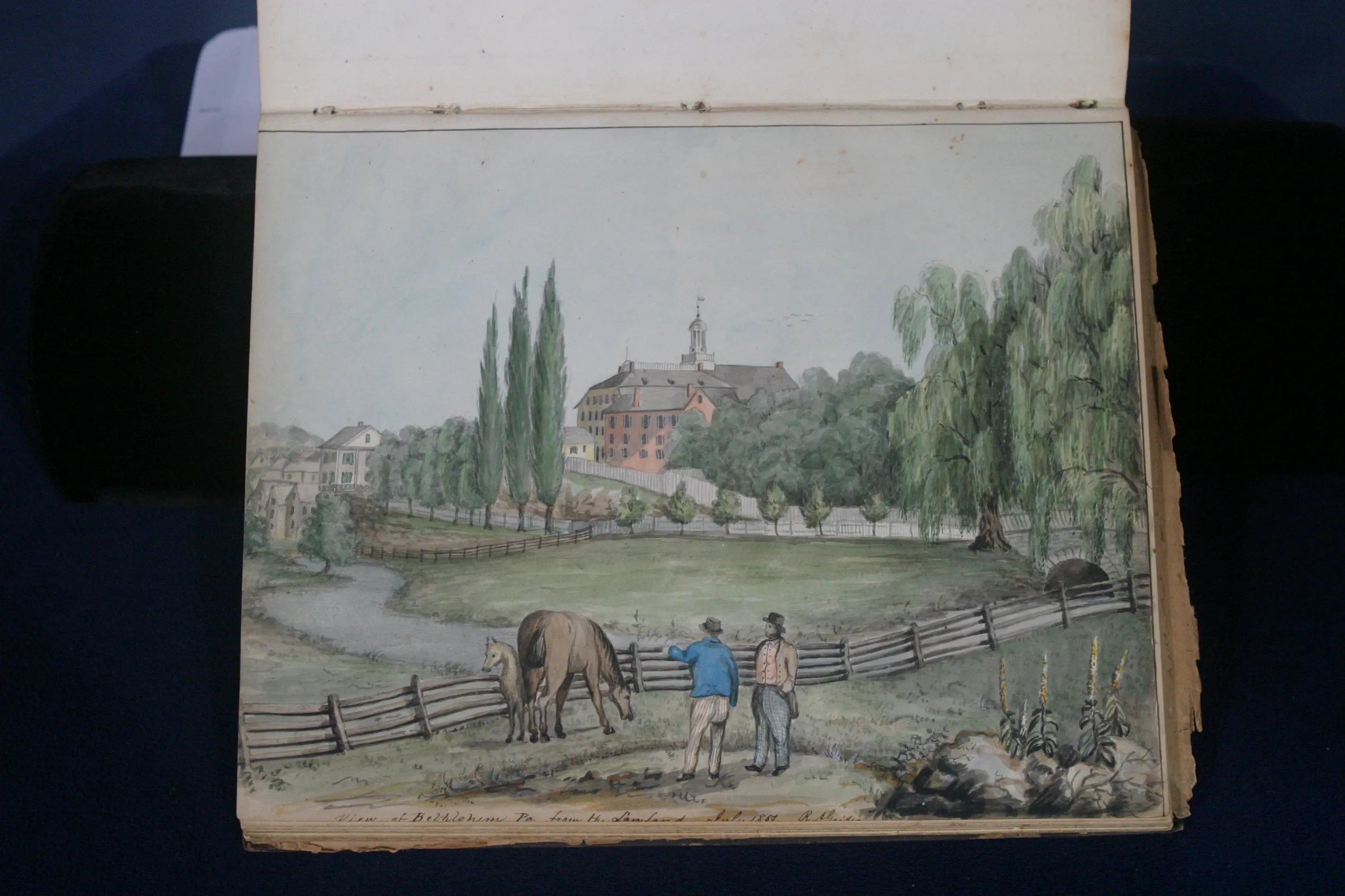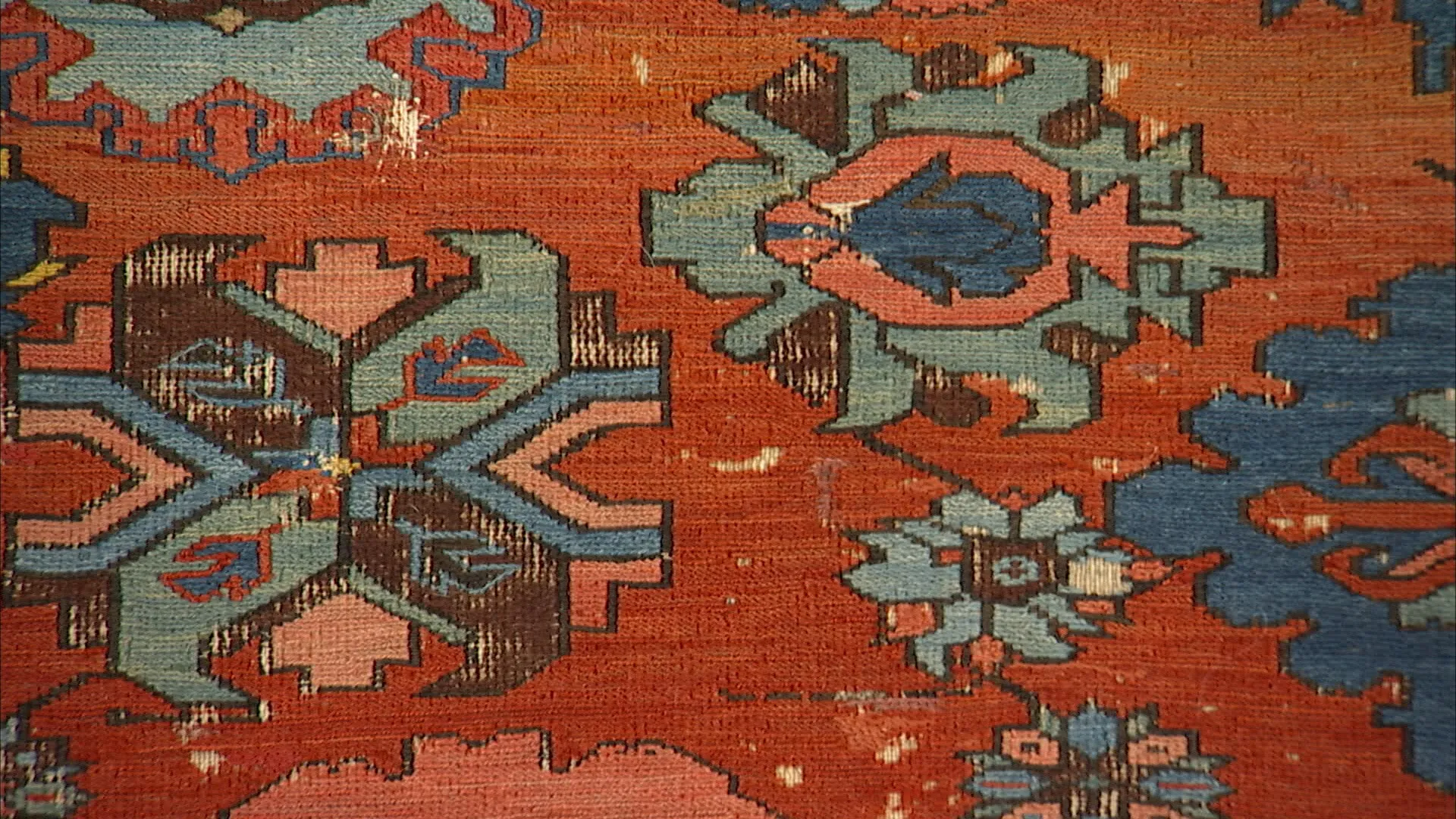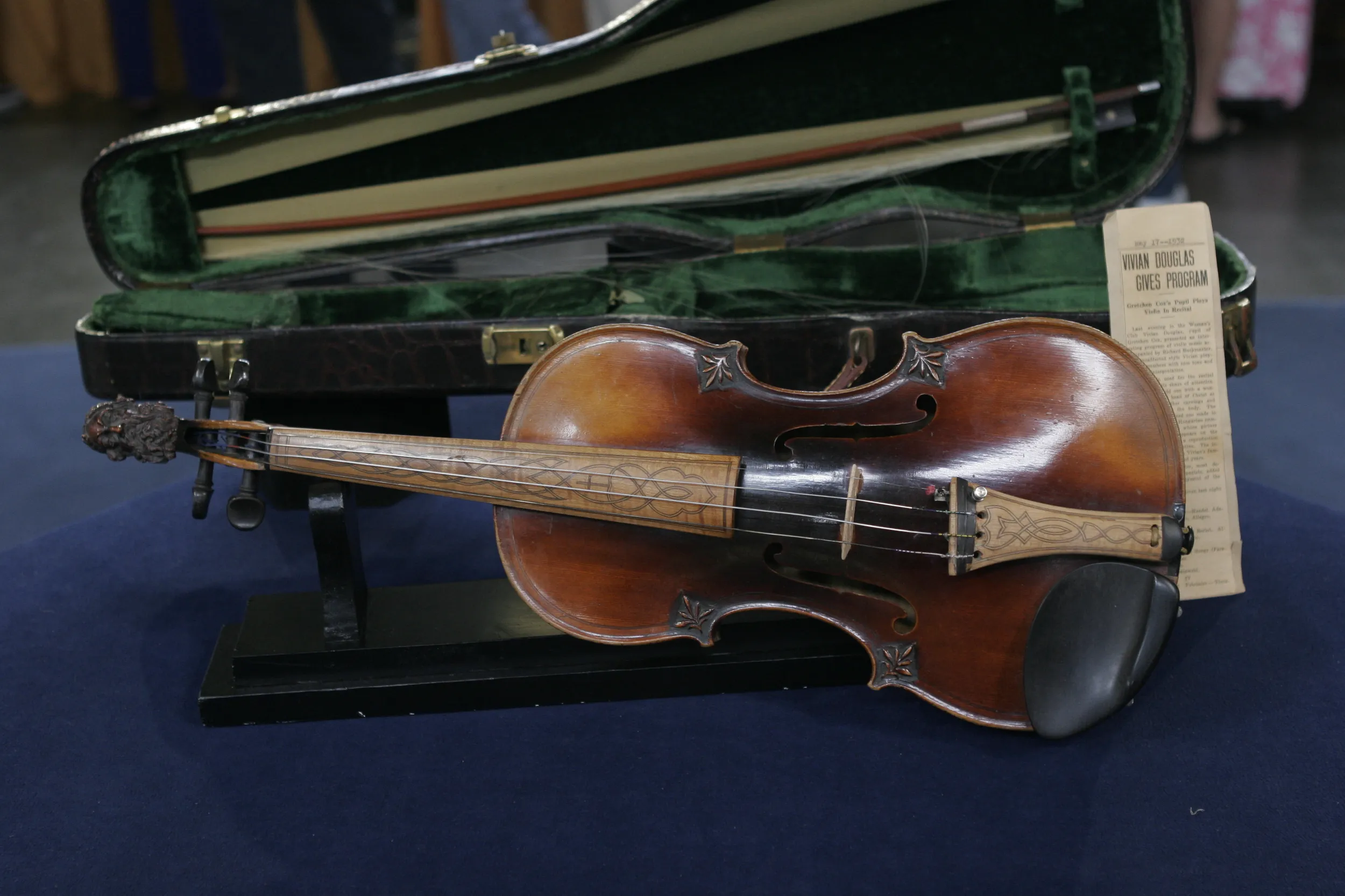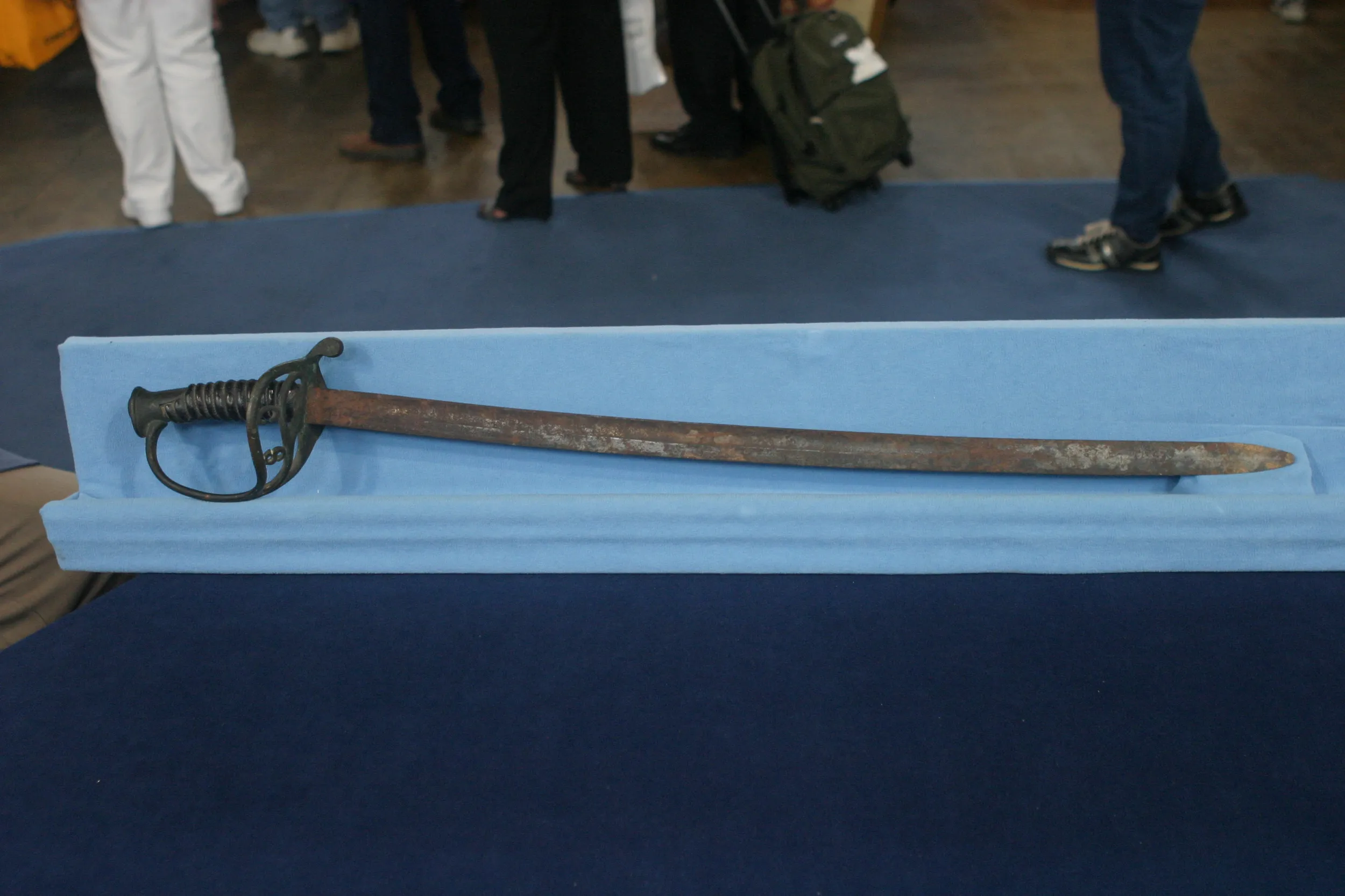GUEST: My uncle and aunt came to Oklahoma in 1898. He was a professional gambler. They traveled over Oklahoma, they went to Shawnee, came back. They decided they liked Tulsa best and at that time it was called Tulsee Town. And he leased a building in Tulsa that had a cigar stand, a barber shop, a billiard parlor, and upstairs he had a gambling hall. And he operated the cigar stand and soon discovered that there was money in lending money to the gamblers. And when they went broke, they came down and pawned their ring to him, or their diamond. And the story goes that if it was a big enough diamond, and it was enough money, he would go upstairs and win the money he loaned them. And he would still hold his diamond for them to pick up. (chuckles) And at that time or soon after, the oil boom hit Tulsa, and that's when his business really boomed, but of course, statehood came in, which kind of slowed the gambling situation down a great deal.
APPRAISER: That fits perfectly, because it was manufactured by Will & Finck in San Francisco. They started out as cutlers in the 1860s making bowie knives and other cutlery things, and then as demand lessened for the bowie knives, they proceeded to make gaming equipment and they made gaming equipment clear up until the '30s. This would probably fit the turn of the century as far as production goes. The exciting part about it is the vivid colors, how the patina on the paint is so untouched and it's never been monkeyed with. And then, of course, it says Will & Finck, 818 Market Street, San Francisco. So made in California by a very, very important maker of gaming equipment. It's the mother of all game makers.
GUEST: Well, great!
APPRAISER: Yeah, it's just beautiful. It's worth around $4,000.
GUEST: Is that right? Well, you probably scared my daughter to death. She keeps it in her living room.
APPRAISER: (chuckling) Okay.

